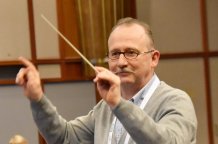Articles

Edmund Sonuga-Barke (PhD Psychology, 1988)
Alumnus elected as a Fellow of the prestigious British Academy
Alumnus, Professor Edmund Sonuga-Barke (PhD Psychology, 1988) of the Institute of Psychiatry, Psychology & Neuroscience, has been elected a Fellow of the British Academy.
Edmund is one of four UK psychologists among 76 distinguished scientists and scholars to be elected to the fellowship in recognition of his work on ADHD and related neurodevelopmental disorders. He is a Professor of Developmental Psychology, Psychiatry & Neuroscience in the Department of Child & Adolescent Psychiatry, and also has Visiting Chairs at Aarhus University and the University of Sussex, as well as being the Editor-in-Chief of the Journal of Child Psychology and Psychiatry.
Commenting on his appointment, Edmund said: “I feel very blessed to be selected by my peers into such a distinguished and celebrated fellowship. My hope is that this recognition will better enable my colleagues and me to work to raise awareness of, and address, the needs of children with mental health problems and developmental disabilities.”
Driven by his own experience of growing up with dyslexia, Edmund’s research focuses on improving the lives of children and adolescents with neuro-developmental disorders. He studied Psychology at University College of North Wales in Bangor before coming to Exeter to complete his PhD, where he says he had a fantastic three years.
“ I would highlight three things in particular.” Edmund said. “First, the remarkable diversity of cultural background of the wonderful people I formed friendships with – it was a real eye opener for this lad from Derby. While I have not seen most of them for a long time, I still remember our friendships with great fondness. In fact I met my wife, Funke, while we were both in our first year – she was studying an MSc in Middle Eastern Politics and it was love at first sight (for me at least).
“Second, the stimulating and open intellectual climate within the psychology department at the time. The message I took away was that scholars and scientists should really care about ideas and be willing (and able) to discuss them with passion. Certainly people like Dick Eiser, Paul Kline, Steve Reicher (now a fellow FBA) and Stephen Lea were never shy in stating their point of view and neither was I – I loved the cut and thrust of the intellectual chase.
“Third, was the cricket! I was blessed to play for the Exeter Erratics (whose badge rather tellingly is a pink unicorn rampant on a deep blue background) during their glory years at grounds across Devon and beyond. Wonderful, if not on occasion slightly potty people – very warm memories. In fact during my first year I spent so much time playing cricket that a supervisor sent me a note reminding me why I was attending the University and it wasn’t to score runs, take wickets or pouch catches. I am delighted to say that the Erratics are still thriving although Gras Lawn, our home ground, is sadly no more.”
Edmund is a great believer in Providence and not a big fan of academic career planning. However says that Exeter helped to shape the scientist he is today, and was absolutely pivotal to his approach to thinking about human behaviour and development.
“I came to Exeter having taken a BSc at University College North Wales Bangor. I brought with me two core ideas – Professor Tim Miles taught me about the relationship between psychology and philosophy - that successful empirical study can only be built on conceptual clarity. And Professor Fergus Lowe (who was a staunch Skinnerian) taught me if you want to understand why a behaviour occurs look at the functions it serves.
“In Exeter my two brilliant supervisors Professor Stephen Lea and Paul Webley (sadly recently deceased after a dazzling career at Head of SOAS) took me to the next step. They gave me a love of experimental design and a recognition of the need to study human behaviour through development. Most tellingly Paul taught me to take the child’s point of view when thinking about the functions of their actions, and Stephen that all actions are choices under constraint. These ideas fundamentally changed my view of how to think about and study human behaviour, and have influenced in particular my ideas about attention-deficit/hyperactivity disorder.”
“I realise that when I was studying the climate was very different, however I would encourage students to have the confidence to think deeply and critically about what they are being taught, to never accept received wisdom without question, especially from old duffers like me, and not to shy away from asking the difficult questions without fear or favour. I would also encourage them to think carefully about how their own beliefs and values – the things they take for granted about the world – influence their practice of psychology. It’s amazing how a little unpacking of those beliefs can open up new and original ideas.
“Finally, never stop learning – it’s a life-long adventure.”
Date: 17 July 2018
